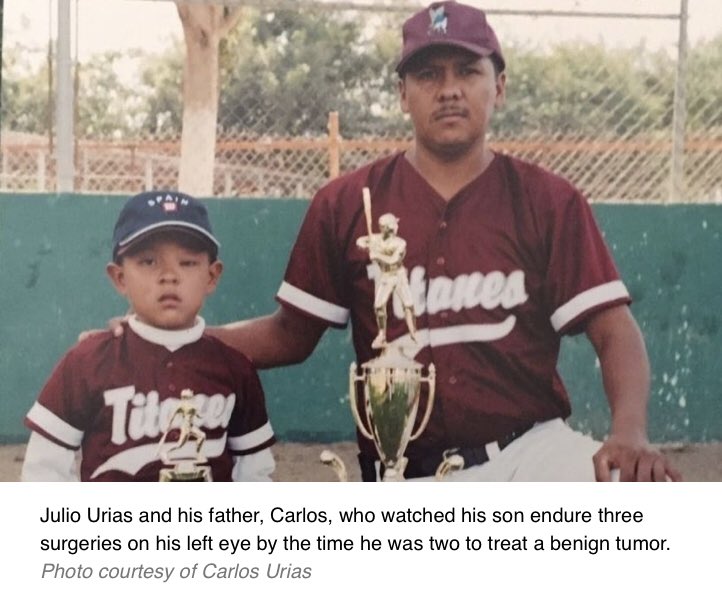
BIG NEWS 📣
This year at the @latimes I'll be working on a project I've long dreamed of.
I'll be writing the #SalvadoranSeries, a collection of stories documenting what became of the hundreds of thousands of Salvadorans that fled El Salvador during the U.S.-backed war.
This year at the @latimes I'll be working on a project I've long dreamed of.
I'll be writing the #SalvadoranSeries, a collection of stories documenting what became of the hundreds of thousands of Salvadorans that fled El Salvador during the U.S.-backed war.
Today, Salvadorans make up the third largest Latino population in the U.S.. They have a vast presence in Los Angeles, the D.C. region & many major cities.
You can also find thousands of Salvadoreños in Canada, Australia, Italy and Spain.
You can also find thousands of Salvadoreños in Canada, Australia, Italy and Spain.
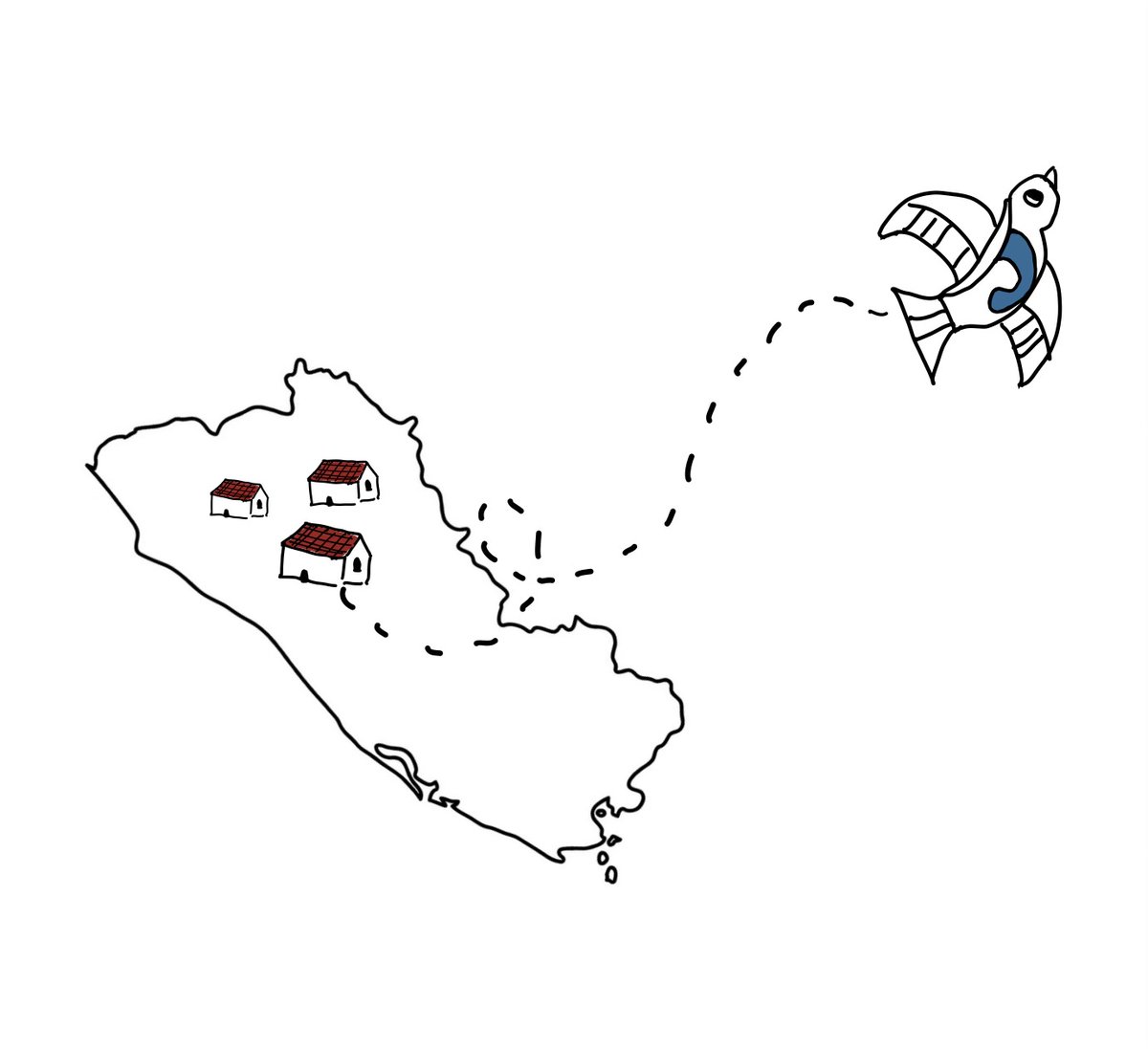
Four decades after their great migration began, there's so much that's misunderstood about the Salvadoran diaspora. So much that's been erased about their history, their identity & most of all, about the key role the U.S. has played in shaping their homeland & in displacing them.
It's important for me that the Salvadoran community feels a part of this project from the start, that they participate in the telling of their story in their own words.
So as part of this series, I'm happy to share the @latimes has launched The Salvadoran Oral History Project.
So as part of this series, I'm happy to share the @latimes has launched The Salvadoran Oral History Project.
We've teamed up with 160 Central American Studies students at @UCLA to collect the oral histories of nearly 100 Salvadorans all over the world. 🌏
Participants will be recording memories from their childhood, the war, their migration, their first days in the U.S. & more.
Participants will be recording memories from their childhood, the war, their migration, their first days in the U.S. & more.
In just three days, more than 700 Salvadorans worldwide registered to be a part of this special @latimes oral history project -- janitors and restaurant owners from L.A., engineers and students from Australia, psychologists and retail workers from New Jersey.
#SalvadoranSeries
#SalvadoranSeries
In coming months, we'll be creating new opportunities for storytelling at the @latimes. If you're Salvadoran and you'd like to share a bit about your story or your family's story OR if you'd like to stay updated on the #SalvadoranSeries, register here: lat.ms/salvadorans 
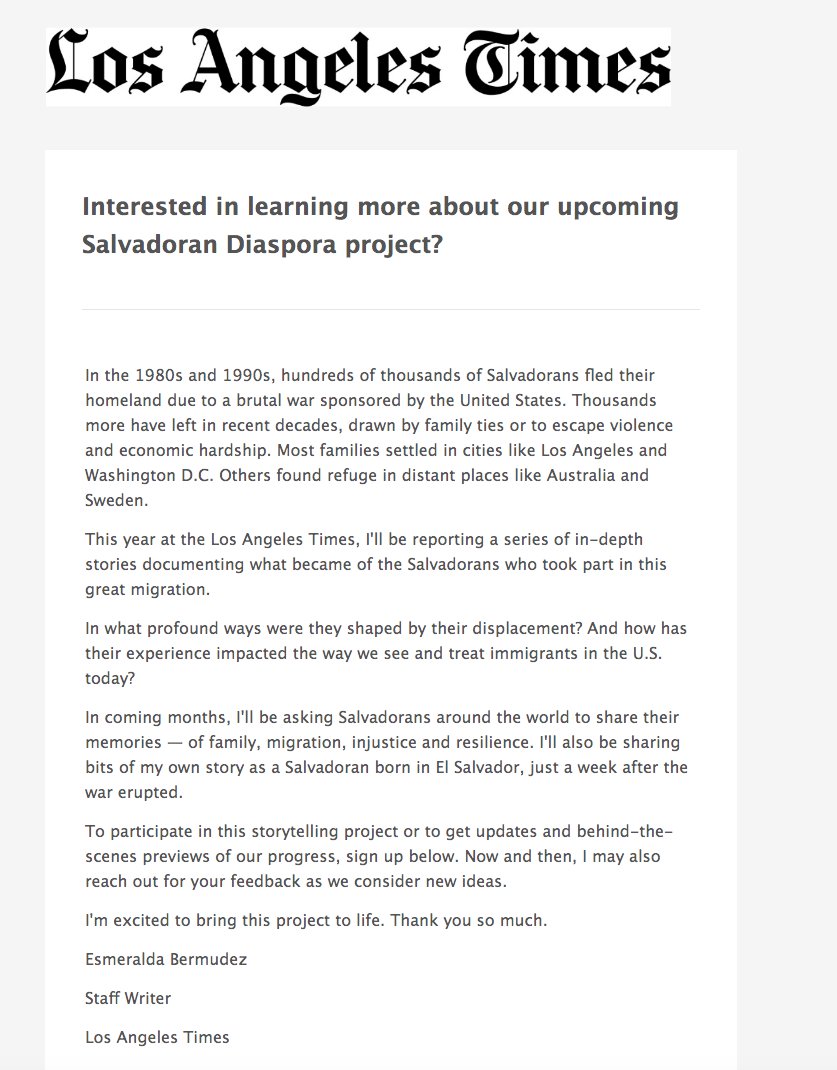
Mil gracias to the UCLA César E. Chávez Department of Chicana & Chicano & Central American Studies & to Assistant Professor @BojLopez for collaborating w/ the @latimes on the Salvadoran Oral History Project.
Gracias @salvieswholunch y todos los Salvadoreños who spread the word🙏
Gracias @salvieswholunch y todos los Salvadoreños who spread the word🙏
Por favor compartan 📣
Este año en el @latimes, estaré reportando una serie de historias en profundidad que documentan lo que pasó con los salvadoreños que participaron en la gran migración de los 1980s.
#SalvadoranSeries
Este año en el @latimes, estaré reportando una serie de historias en profundidad que documentan lo que pasó con los salvadoreños que participaron en la gran migración de los 1980s.
#SalvadoranSeries
En las décadas de 1980 y 1990, cientos de miles de salvadoreños huyeron su tierra natal debido a una guerra patrocinada por los Estados Unidos.
Miles más se han ido en las últimas décadas, atraídos por lazos familiares o para escapar de la violencia y las dificultades económicas
Miles más se han ido en las últimas décadas, atraídos por lazos familiares o para escapar de la violencia y las dificultades económicas
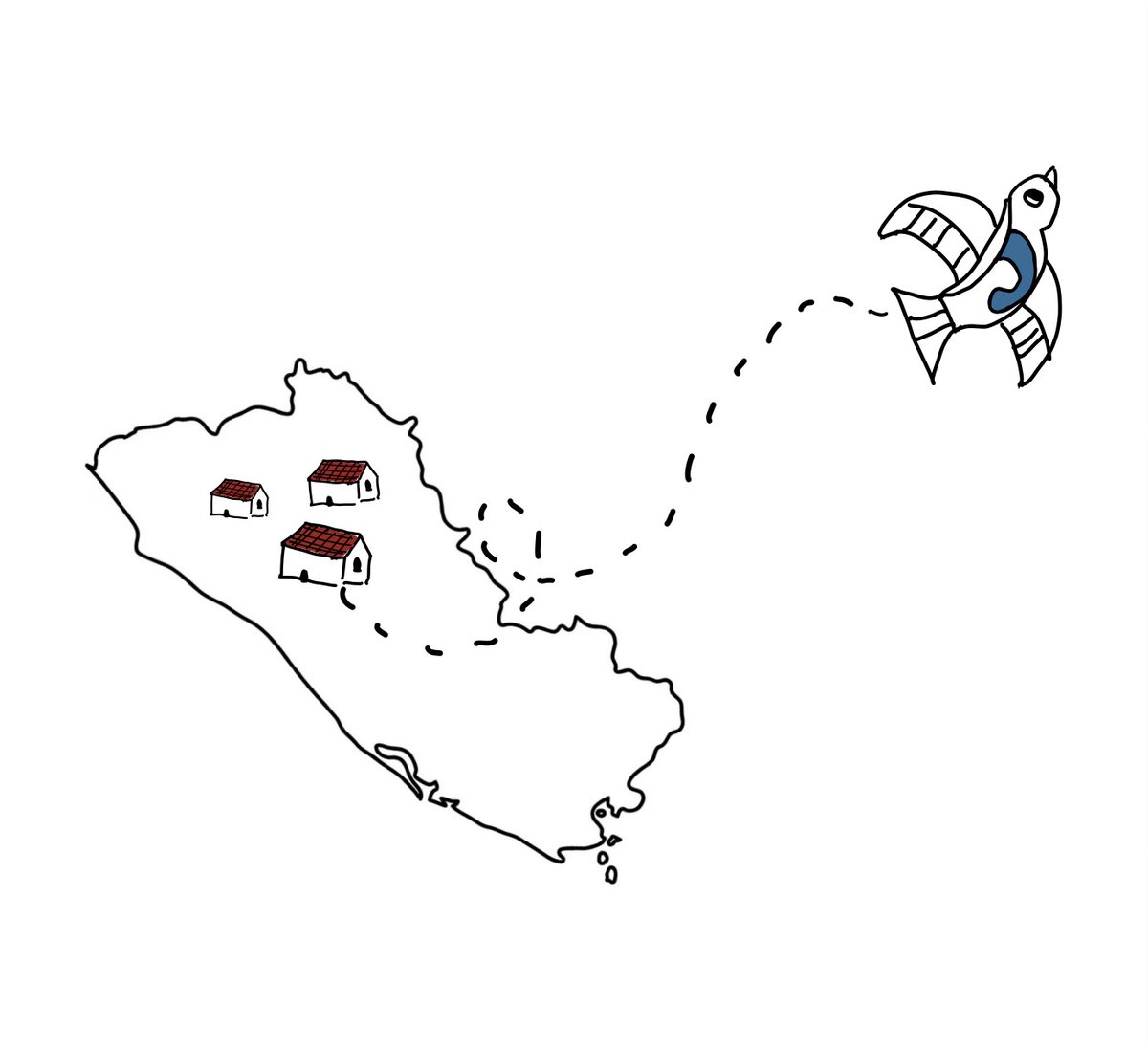
Hoy en día, los salvadoreños constituyen la tercera población latina más grande de los EE. UU. Tienen una gran presencia en Los Ángeles, la región de D.C. y muchas ciudades importantes.
También puedes encontrar miles de salvadoreños en Canadá, Australia, Italia y España.
También puedes encontrar miles de salvadoreños en Canadá, Australia, Italia y España.
Cuatro décadas después de que comenzara su gran migración, hay muchas cosas que se malinterpretan sobre la diáspora salvadoreña. Mucho se ha borrado sobre su historia, su identidad y sobre el papel clave que los EE. UU. ha desempeñado en su patria y en su desplazamiento.
Para mí, es importante que la comunidad salvadoreña se sienta parte de este proyecto desde el principio, que participe en el relato de su historia con sus propias palabras.
Por eso, como parte de esta serie, el @latimes ha lanzado el Proyecto de Historia Oral Salvadoreña.
Por eso, como parte de esta serie, el @latimes ha lanzado el Proyecto de Historia Oral Salvadoreña.
Nos hemos asociado con 160 estudiantes de Estudios Centroamericanos en @UCLA recopilar las historias orales de casi 100 salvadoreños en todo el mundo. 🌏
Los participantes grabarán recuerdos de su infancia, la guerra, su migración, sus primeros días en los EE. UU. Y más.
Los participantes grabarán recuerdos de su infancia, la guerra, su migración, sus primeros días en los EE. UU. Y más.
En solo tres días, más de 700 salvadoreños en todo el mundo se inscribieron para ser parte de este proyecto de historia oral: niñeras y dueños de restaurantes de Los Ángeles, ingenieros y estudiantes de Australia, psicólogos y contadores de Nueva Jersey.
En los próximos meses, crearemos nuevas oportunidades para contar historias en el @latimes. Si usted es salvadoreño y le gustaría compartir su historia o la historia de su familia o si quiere aprender mas sobre el #SalvadoranSeries, regístrese aquí: jotform.com/build/21031695… 
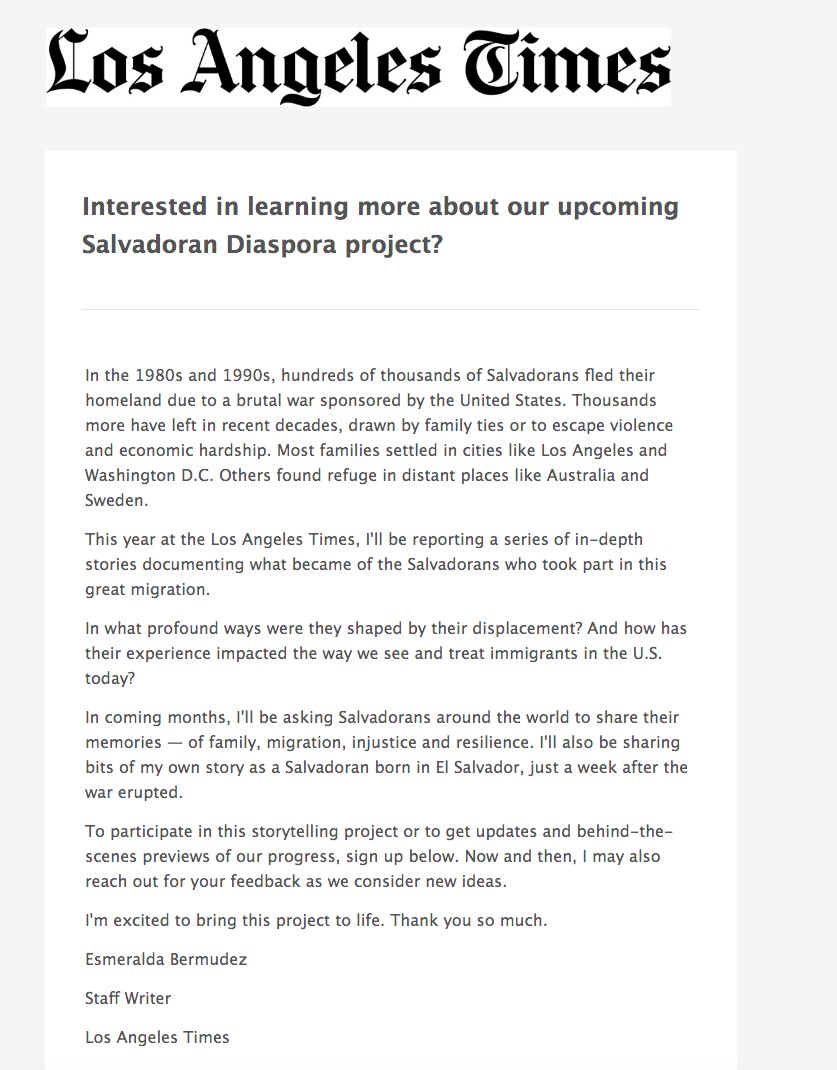
• • •
Missing some Tweet in this thread? You can try to
force a refresh

